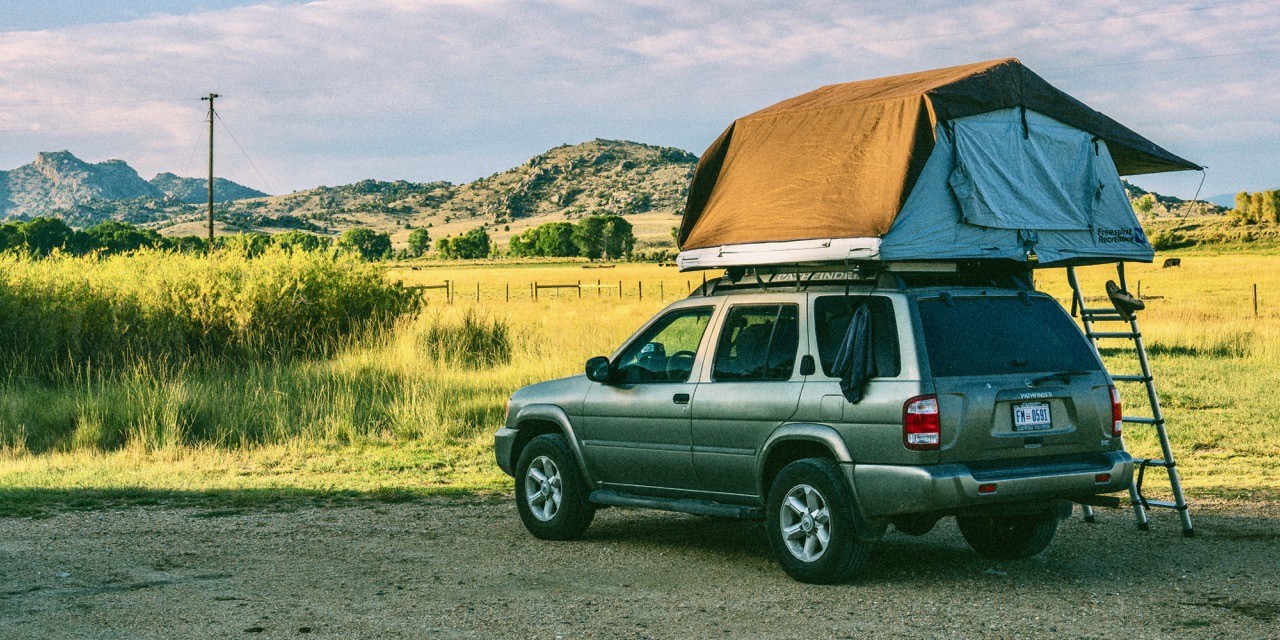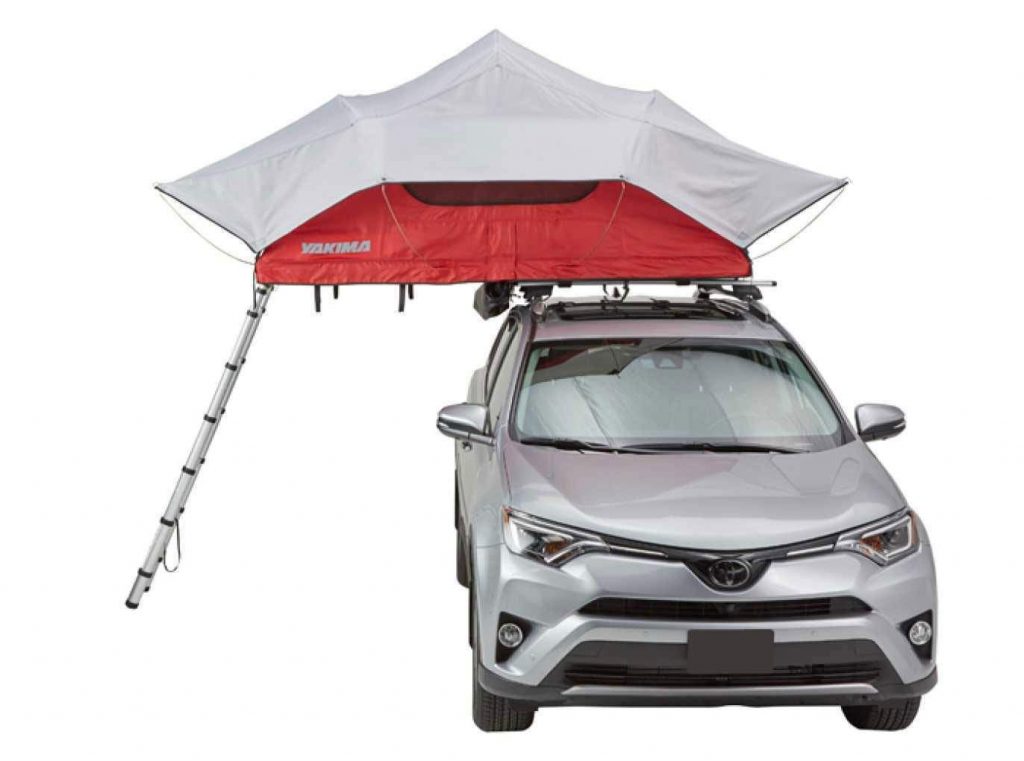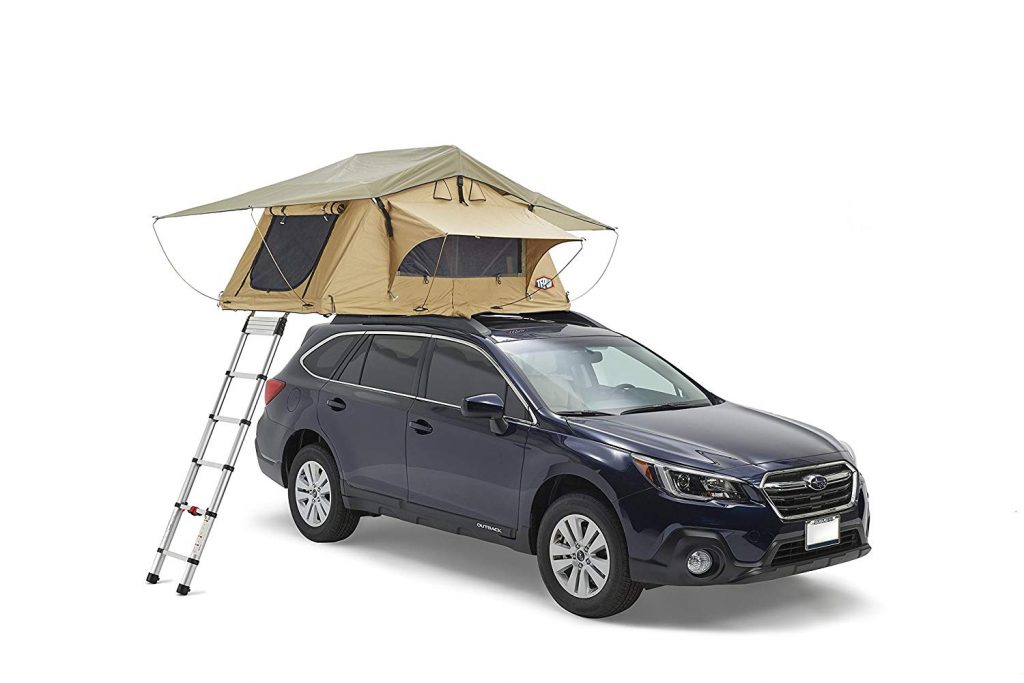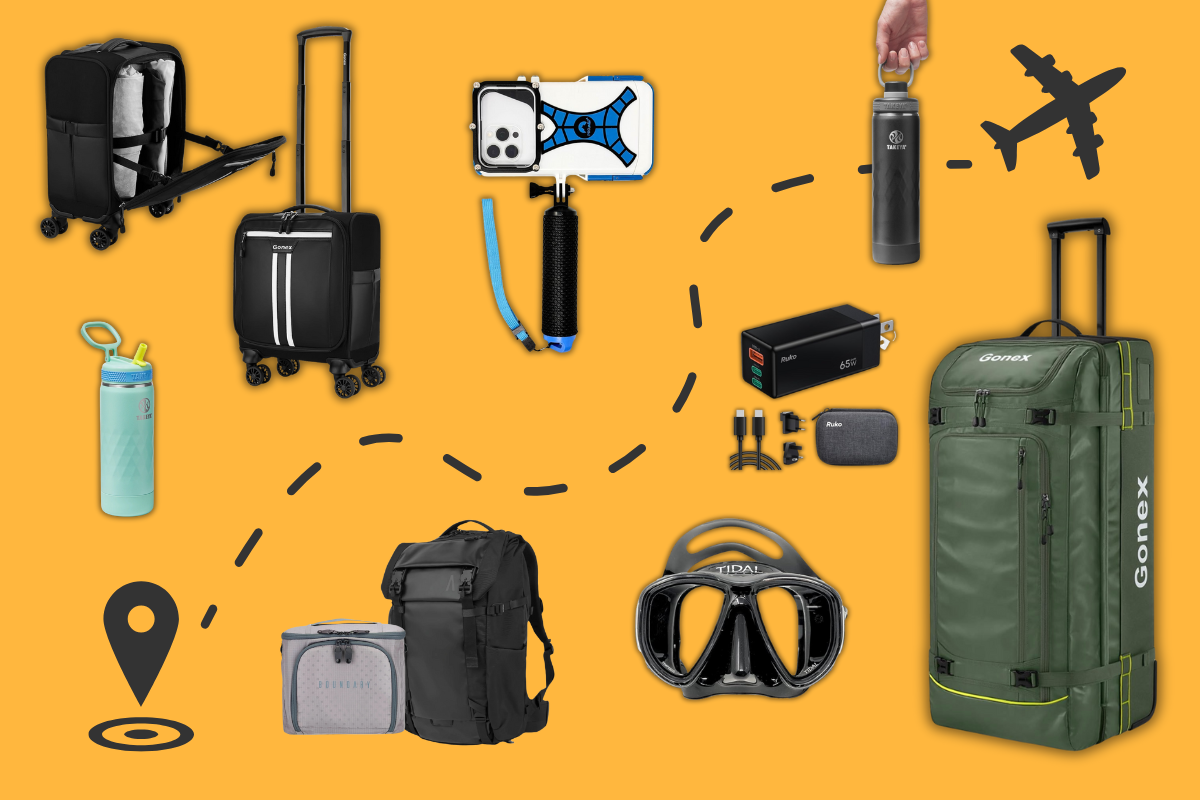

Depending on your camping knowledge, this may be you’ve heard of a rooftop tent. These handy contraptions that affix, yes, to your car’s roof first became popular in Australia, a land that’s famous for its large array of creepy crawlies, where a rooftop tent gets you off the ground. Over the past couple of decades, they’ve grown in popularity in other countries with large insect populations, and they’re starting to gain popularity in the U.S.
Videos by Outdoors
So, are they worth it? Well, it depends…
Where are you camping?
A rooftop tent provides you with different location options than a traditional tent. Because it mounts on your car, you can use it in locations where a traditional setup would be impractical or outright forbidden—for example, a store parking lot, an RV lot or a highway rest stop.
On the other hand, rooftop tents are heavy. Even the lightest options weigh in at around 100 pounds, which is about 90 pounds heavier than even the bulkiest backpacking tents. Needless to say, you’re not going to be hiking the Appalachian Trail—or even walking a mile—with one of these on your back.
What kind of camping are you doing?
Depending on what you’re doing, a rooftop tent can be a camper’s best friend or worst enemy. A rooftop tent requires a roof rack to support it. Once the roof rack is installed, the tent is mounted on top and remains there while you’re driving to your destination. During travel, the tent is collapsed, and you pop it open when you arrive where you want to camp.
So you’ve got a tent that requires significant effort to mount on your vehicle, but can be popped open in less than a minute. If you’re not going to be driving much during your camping trip, or if you’re sleeping in a different place every night, you may want to consider purchasing a rooftop tent, as they may be more convenient than a traditional one.
On the other hand, if you’re sleeping at the same campground for several nights, you may want to do some driving to nearby attractions or even the grocery store. In that case, you’ll have to collapse the tent. You’ll also need to leave something—or someone—behind to make sure no one takes your campsite.
What kind of vehicle do you own?
Different vehicles are going to accept different types of rooftop tents. For example, a large SUV or a pickup with a bed cap can accommodate a very large tent. A car will have a smaller capacity, although even a small sedan can typically support a two-person tent. There are also some cool options available for pickup truck beds, which utilize the top of your cab as a loft.
Another important consideration is your vehicle roof’s weight capacity. Modern cars are designed to support the weight of the vehicle in the event of a rollover, which theoretically means that you should be able to mount a roof rack kit and a tent on any compatible vehicle. That said, it’s important to be safe, so check your car’s payload and make sure it’s enough to support the rack system, the tent, however many people are going to be inside the tent and all your camping supplies.

What’s your budget?
Traditional camping tents are usually affordable. There are plenty of options out there with lots of bells and whistles. But at the end of the day, you can get into a serviceable tent for as little as $100.
Rooftop tents need stiff bottoms with plenty of support. They also include ladders and need to be collapsible and safe for driving. As a result, they’re more expensive. Even for a basic, budget model, you’ll pay at least $1,000. That’s enough to buy some of the most luxurious backpacking tents on the planet! Another budgetary consideration: how the added load and wind resistance may affect your car’s gas mileage.
So, are rooftop tents worth it?
Whether or not you should purchase a rooftop tent all depends on what you’re looking for.
If you want to camp in the deep woods or leave your tent set up while you drive your car around for excursions, there are better options available. They’re also not well-suited for vehicles that won’t support a roof rack.
On the other hand, rooftop tents are easier to set up than traditional tents. They keep you off the ground, away from bugs, and they allow you to camp in unconventional locations. If these things appeal to you, a rooftop tent could be a good investment.










